Have you ever found yourself scratching your head over the question, do chickens eat ticks? Well, you’re not alone. As someone who’s had her fair share of experiences with backyard poultry and frustrating encounters with ticks, I’ve asked the same question myself. After all, if these feathered friends could help control these pesky pests, that would be a win-win, right?
So, I set out to dig deeper, to gather scientific evidence, personal anecdotes, and practical advice from fellow poultry keepers. After tireless research and numerous conversations, the answer to the question is a resounding, yes! Chickens do eat ticks, but the relationship between our clucking companions and these tiny arachnids is more complex than it seems at first glance.
In the following sections, we’ll delve into the intricate dynamics of chickens and ticks. We’ll examine the role chickens can play in tick control and consider practical tips for those thinking of enlisting their own flock in the battle against ticks. We’ll also explore the additional benefits and potential drawbacks of raising chickens for pest control. So, get comfy, because there’s a lot to unpack in the fascinating world of chickens and ticks.

Understanding Chickens’ Natural Diet
Let’s talk about our feathered friends, the chickens. Chickens are, by nature, omnivorous. They love to peck and scratch around for all sorts of things to eat, from seeds and grains to fruits and vegetables. But did you know they also have a hankering for insects? Yes, indeed! Bugs, worms, and even small rodents can form part of a chicken’s diet.
[ChickenAffiliate]
Chickens and Pest Control: An Overview
Now, this insect-eating habit of chickens is not just interesting – it’s potentially beneficial too! Many people have started using chickens as a form of natural pest control. Think about it.
Chickens have an insatiable appetite for bugs, and their constant scratching and pecking can help control the pest population in your yard. But like all good things, it comes with its pros and cons, which we’ll dive into a little later.
Ticks: An Undesirable Garden Pest
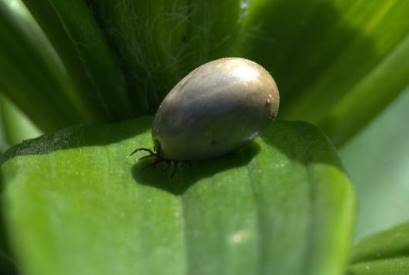
Next up on our agenda is the dreaded tick. These small, blood-sucking critters are more than just a nuisance. They are known carriers of diseases, posing a risk to humans and pets alike. Controlling the tick population is vital to maintaining a healthy garden environment.
What are Ticks?
Before we can tackle the tick issue, it’s important to understand what ticks are. These tiny creatures belong to the arachnid family, which means they’re more closely related to spiders than insects. They come in a variety of species, but all ticks are parasites that feed on the blood of mammals, birds, and sometimes reptiles and amphibians.
The Life Cycle of a Tick
Ticks have a complex life cycle that spans four stages: egg, larva, nymph, and adult. After hatching from an egg, a tick must feed on a host at each stage before maturing into the next. This means a tick could potentially infest your garden at any point in its life cycle, making them a persistent pest.
The Dangers Ticks Pose
Ticks aren’t just a nuisance; they pose serious health threats to both humans and pets. They are known to transmit diseases such as Lyme disease, Rocky Mountain spotted fever, and several others. These diseases can lead to significant health issues, making tick control a top priority for anyone wanting to maintain a safe garden environment.
Current Methods of Tick Control
Traditionally, tick control has been a combination of chemical and biological methods. Chemical pesticides can be effective but also pose potential risks to the environment and non-target species.
Biological control methods, like introducing natural predators or using pathogenic fungi, can be a more sustainable alternative. However, these methods also have their limitations, and an effective tick control strategy often involves multiple approaches.
Chickens as a Solution to Tick Problems
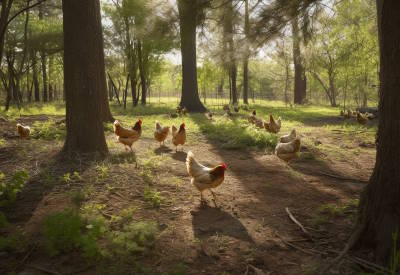
Enter the humble chicken. Could these backyard birds be the answer to our tick troubles? Well, there’s some evidence to suggest they might be.
Chickens and Their Tick-Eating Habits
When we think of chickens, ticks might not be the first thing that comes to mind. However, as we’ve established, these backyard birds are omnivorous and will happily snack on a variety of insects – including ticks.
Chickens aren’t tick specialists by any means, they don’t purposely hunt for ticks. But if they come across these pests while foraging, they’ll likely see them as a tasty treat.
Scientific and Anecdotal Evidence
While the image of chickens as tick-eating heroes is appealing, it’s important to approach this idea with a level-headed perspective. Some studies and anecdotal evidence do suggest that chickens can help in reducing tick populations. Chickens have been observed eating ticks, and many chicken owners swear by their effectiveness in keeping these pests at bay.
However, it’s worth noting that the scientific evidence is mixed. Some studies suggest chickens do eat ticks but may not make a significant dent in the overall tick population. Others indicate that chickens can have a noticeable impact, especially when part of an integrated pest management strategy.
Effectiveness and Limitations of Chickens in Tick Control
In considering the role of chickens in controlling ticks, it’s crucial to understand that their effectiveness varies depending on several factors. These can include the number of chickens, the size and type of area they’re foraging in, the density of the tick population, and the presence of other food sources.
Chickens can help in tick management, but they shouldn’t be seen as the sole solution. Rather, they can be one tool in a comprehensive, multi-pronged approach to controlling tick populations. The benefit of chickens is that, while they’re helping to manage pests, they also provide other benefits such as egg production and soil aeration.
Practical Tips for Using Chickens to Control Ticks
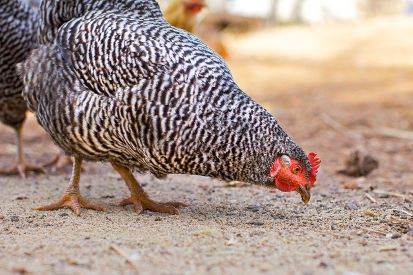
If you’re considering employing chickens as tick controllers, there are some practical steps to follow.
Introducing Chickens to a Tick-Infested Environment
If you’re considering using chickens as your personal tick control squad, it’s not as simple as just letting them loose in your yard. Chickens need to be introduced gradually to the tick-infested environment. Consider starting with a small flock and observe their behavior and impact on the tick population.
Managing Chickens for Effective Tick Control
Management is key when using chickens for tick control. Chickens should be allowed to free-range throughout your yard, giving them ample opportunity to forage in areas where ticks may be hiding. However, free-ranging chickens must also have a secure coop or chicken house where they can roost safely at night, away from predators.
Regularly move the chickens’ free-ranging area to ensure they cover as much ground as possible. This strategy, known as “chicken tractoring,” can be an effective way to maximize the chickens’ foraging coverage and potential impact on ticks.
Ensuring the Health and Safety of Your Chickens
While chickens can eat ticks, they can also potentially become hosts to these pests, particularly if the tick population is high. Therefore, regular health checks are crucial. Inspect your chickens for any signs of ticks, particularly around their eyes, under their wings, and near their vents.
Chickens that are exposed to heavy tick infestations may need additional care, such as anti-parasitic treatments. It’s a good idea to establish a relationship with a local vet who has experience with chickens. They can provide valuable advice and care to ensure your flock remains healthy and thriving.
Compliance with Local Regulations
Lastly, always check your local regulations regarding keeping backyard chickens. Some areas have specific rules about the number of chickens you can keep, coop requirements, and other relevant considerations. Being aware of and complying with these rules will ensure you can keep your chickens and continue your tick control efforts without any hitches.
Weighing the Pros and Cons: Chickens in Pest Control
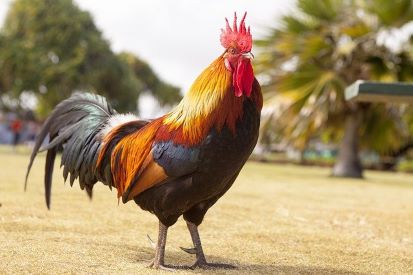
While chickens offer a natural and multi-faceted approach to pest control, it’s important to consider the full picture. Understanding both the benefits and potential challenges will help you decide if chickens are the right solution for your tick control needs.
Beyond Ticks: Chickens as All-Round Pest Controllers
Chickens, with their omnivorous diet, don’t just stop at ticks. They are also voracious eaters of a variety of other garden pests. Slugs, snails, beetles, and even small rodents can fall prey to a foraging chicken. This makes chickens a great natural option for controlling a range of common garden nuisances, not just ticks.
The Added Perks of Keeping Chickens
In addition to their pest control prowess, chickens offer a host of other benefits. They’re a source of fresh, nutritious eggs—a boon for any household. Their droppings can be composted and used to enrich your garden soil.
Plus, chickens are great at turning and aerating soil with their scratching, helping to improve soil health. And let’s not forget the joy and entertainment that comes from watching these lively creatures—chickens can make great pets!
The Potential Challenges of Raising Chickens for Pest Control
While the advantages are many, it’s important to also consider the potential challenges of keeping chickens for pest control. Chickens can be noisy, particularly roosters. Their scratching and pecking, while great for pest control and soil health, can also wreak havoc on garden beds and lawns.
Moreover, chickens require care and attention. They need to be fed, their coops cleaned, and their health monitored. Not to mention, they can attract predators, which means you’ll need to take steps to ensure their safety.
Chickens: Natural Exterminators for a Variety of Insects
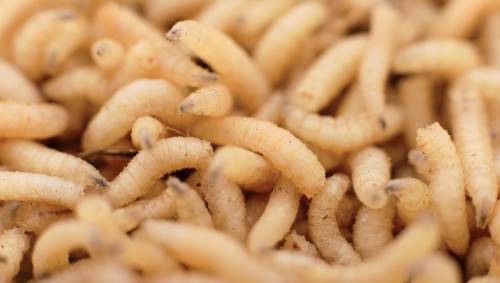
Chickens are not picky eaters and have a broad diet that includes a range of insects apart from ticks. Each insect type provides different benefits when consumed by chickens. Let’s dive into five common insects and explore why it’s good for chickens to include them in their diet.
Mosquitoes: A Protein-Packed Snack
Chickens love to feast on mosquitoes. These pesky insects are a great source of protein for chickens, helping to promote growth and egg production. Plus, chickens helping to reduce the mosquito population is a bonus for us, given that mosquitoes are notorious for spreading diseases like West Nile virus and Zika virus.
Read More: Do Chickens Eat Mosquitoes? Surprising Benefits Revealed
Maggots: Nutritious and Easily Digestible
Maggots may not be pleasant for us, but for chickens, they’re a nutritious treat. These larvae are easy for chickens to digest and are rich in protein. Chickens scratching and pecking around compost heaps or decaying matter can help control maggot populations, keeping your yard cleaner and healthier.
Read More: Do Chickens Eat Maggots? Unveiling The Surprising Benefits
Fleas: Tiny but Beneficial
Fleas, like ticks, are a common pest that chickens can help control. While small, fleas are another source of protein that can contribute to a chicken’s diet. Chickens will peck at and consume fleas when they come across them during their regular foraging activities.
Read More: Do Chickens Eat Fleas? Your Backyard’s Secret Pest Patrol
Flies: A Common Yet Valuable Meal
Flies are a regular part of a chicken’s diet. Chickens will snap up flies whenever they get the opportunity. Not only does this provide chickens with a nutritional boost, but it also helps to control fly populations around your home and garden, making outdoor activities more enjoyable for you.
Read More: Do Chickens Eat Flies? Uncovering The Fascinating Truth
Bees: A Risky Delicacy
Bees are not typically a primary food source for chickens due to the risk of stings. However, some chickens will still attempt to eat them. Bees are rich in protein and can be consumed without harm if the chicken is able to avoid getting stung.
Read More: Do Chickens Eat Bees? The Surprising Truth Revealed
While it’s not encouraged to use chickens as a method of bee control, the occasional bee in a chicken’s diet won’t do them any harm and can actually provide some nutritional benefits.
Do chickens eat ticks – final thoughts
In summary, chickens do eat ticks, but their effectiveness as a tick control method can vary. Factors such as flock size, foraging area, and tick density all play a role in how much impact chickens can have on tick populations. Thus, while chickens can contribute to tick control, they shouldn’t be viewed as a standalone solution.
Additionally, while chickens offer benefits such as egg production and soil aeration, there are challenges to consider. Noise, potential garden damage, and local regulations are all aspects to keep in mind when deciding to keep chickens for pest control. Ultimately, a comprehensive, multi-pronged approach is the most effective strategy for controlling ticks.
Related Articles:
